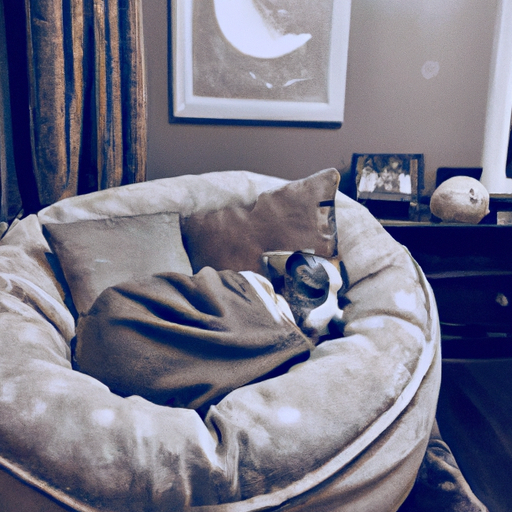Adopting a puppy can be a delightful experience. Yet, it comes with a list of responsibilities and decisions. One of the most important decisions is determining where your new pet should sleep at night. In this guide, we’ll explore eight key factors to consider when deciding where your puppy should sleep.
1. Creating a Comfortable Space
Your new puppy needs a comfortable, quiet place to sleep at night. This could be a crate, a dog bed, or a designated room.
- Crate: Many people find that crate training is beneficial. It provides a safe, secure space for your puppy.
- Dog bed: A dog bed can be a great option, especially if it’s placed in a quiet area of your home.
- Designated room: If you have a spare room, this can be an excellent place for your puppy to sleep.
2. Consistency is Key
It’s important to be consistent with where your puppy sleeps. This helps establish a routine, which can make bedtime easier. If you change their sleeping location frequently, it might lead to confusion and anxiety.
3. Proximity to Your Bedroom
Some experts recommend keeping the puppy in your bedroom for the first few nights. This is because the puppy might feel lonely and scared in a new environment. However, this doesn’t mean the puppy should sleep in your bed.
4. Safety Considerations
Safety is a crucial factor. Make sure the puppy’s sleeping area is free of small objects they might choke on. Also, the area should be warm and free from drafts.
5. Noise Level
Puppies are sensitive to noise. So, ensure the sleeping area is as quiet as possible. If necessary, use white noise machines to drown out any disruptive sounds.
6. Bedtime Routine
Establishing a bedtime routine can help signal to your puppy that it’s time to sleep. This routine could include a final potty break, a quiet play session, and a calming cuddle.
7. Dealing with Nighttime Crying
Nighttime crying is common in puppies. This is often due to separation anxiety. It’s important to be patient and comforting, but also to let them learn to self-soothe.
8. Expert Opinions
Veterinarians and dog trainers can provide valuable advice on where your puppy should sleep. Don’t hesitate to ask for their expert opinion.
| Factor | Considerations |
|---|---|
| Comfort | Crate, dog bed, designated room |
| Consistency | Stick to one sleeping spot |
| Proximity to your bedroom | Close for the first few nights |
| Safety | Free of choking hazards, warm, draft-free |
| Noise Level | Quiet as possible |
| Bedtime Routine | Final potty break, quiet play, cuddle |
| Nighttime Crying | Be patient, help them self-soothe |
| Expert Opinions | Consult with a vet or dog trainer |
Frequently Asked Questions
1. Should I let my puppy sleep in my bed?
While it can be tempting to snuggle up with your new puppy at night, it’s generally not recommended. It can lead to behavioral problems and risks disrupting your sleep.
2. How long will my puppy cry at night?
The length of time a puppy cries at night varies. However, with a consistent bedtime routine and a comfortable, safe sleeping environment, the crying should lessen over time.
3. Do puppies need to go outside during the night?
Yes, young puppies will likely need to go outside to potty during the night. As they get older and their bladder control improves, this will become less necessary.
4. When should I establish a sleeping routine?
It’s best to establish a sleeping routine as soon as possible. This helps your puppy adapt to their new home and reduces anxiety.
Remember, every puppy is unique and may have different sleeping habits. What’s most important is ensuring your puppy is comfortable, safe, and loved. With time and patience, you and your puppy will find a nighttime routine that works for both of you.



